June 23 is International Women in Engineering Day.
That’s twenty-four hours dedicated to honoring the amazing contributions that women have already made in the engineering and automation industry, all while looking forward to the innovations that women will make in the future.
To celebrate, the International Society of Automation is highlighting a few women who have paved their own way in a field that is constantly growing, constantly changing, and like automation itself, constantly evolving.
Click through to read these amazing interviews and be sure to interact with our posts on social media using #ISAInspire.
To all women in engineering, thank you for creating a path for future generations to do the same. We are so appreciative of all that you do.
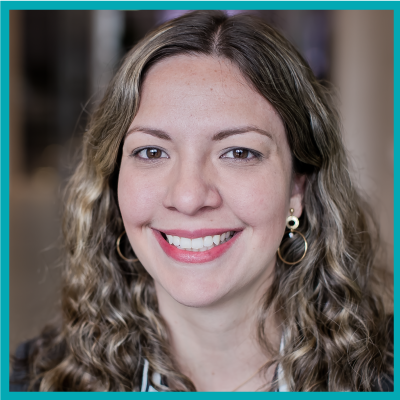
Leticia Zarpellon
Leticia Zarpellon attended Universidade Estadual de Maringá (Maringá State University) in Maringá, Brazil and received a Bachelor of Science in Chemical Engineering and Control Systems Professional Engineer (Texas Board). She is currently working as an Advanced Process Control Manager and International Expert in process controls and smart manufacturing and has been a member of ISA since 2019!
A chat with Ms. Zarpellon
Please briefly describe your current role/career.
I started with Air Liquide Brazil as a trainee doing four rotations of six months each, learning the production process of Air Separation Units, Steam Methane Reformers and Cogeneration Units.
Once the trainee program was done, I became the process engineer of the two largest Air Separation Units in Brazil, responsible for efficiency projects, including APC implementation.
Due to new technology, Air Liquide U.S. needed someone to be responsible for developing, implementing, replacing, and maintaining APC projects. I moved to Houston in October 2017, managed several projects in the period, and trained engineers all around the world on how to implement APC.
Since April 2023, I became the APC Manager, and I am responsible for a team of four engineers implementing and maintaining APC at approximately fifty Air Separation Units and Steam Methane Reformers in the U.S. and Canada.
What made you want to pursue a career in this field?
My family always encouraged me to read and learn about technology and computers from a young age. Once I started working, I learned and fell in love with production processes and efficiency. When the opportunity to join both worlds came, by learning and implementing APC, I took the opportunity and I have not let go. The more I learn about the field, the more I know I chose it right.
What advice do you have for somebody who wants to get into a career in automation/engineering?
Since this is a field that evolves very quickly, read about the field of automation, stay updated with the newest technologies, and find a mentor that can help you navigate this new adventure and teach you how to better understand all of it.
Did you look up to somebody in the field prior to the start of your career?
Prior to the start of my career, I always looked up to my father and my high school math teacher’s ethics and adoration for their job. They always showed me that hard work and commitment pay off, and I mimic what I learned from them. After I started with automation, I looked up to my two mentors, Robert Salter and Arnold Martin. They took the time to teach me, push me to always be better, and learn new skills.
What makes you the most excited about your field?
It is a never-ending field. You can always learn something new, whether it be on the automation side or on the process side. It is always evolving, and it never gets boring.
Is there a piece of advice you have received that you would like to share for future automation professionals?
Never stop learning. Stay up to date with technology. Always be dedicated and fight for what you think is right. Knowledge is something that you own, and nobody can ever take that away from you.
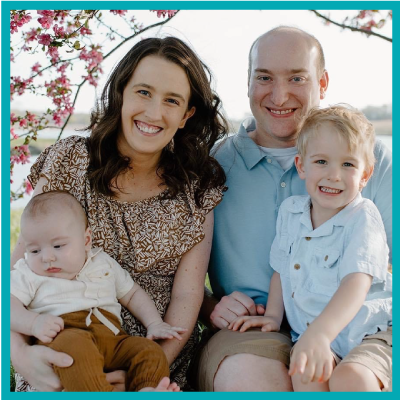
Ashley Weckwerth
Ashley graduated from Kansas State University with a Bachelor of Science in Chemical Engineering. She currently works as a project manager and this June she will be celebrating her 11-year anniversary as a member of ISA!
A chat with Ms. Weckwerth
Please briefly describe your current role/career.
I am the project manager at an engineering firm and my focus is on automation projects in the transmission and distribution space. Currently, my client is an electric utility and our projects with them are focused on their SCADA system. I work with a team of roughly 35 SCADA engineers which roughly comes out to be 20 full-time equivalents to execute over 600 SCADA projects each calendar year for our client. We do everything from review substation drawings to match the client’s SCADA standards, update the points list (IO list) accordingly, create or update RTU configurations, and then provide remote field support during the commissioning. My role as the project manager varies day-to-day but ultimately, I do as the title says and proactively manage the project every day. From scope of work documents, cost analysis, invoicing, resource management/ staff planning, onboarding, consulting the client, growing our culture, schedule management, budgets, and overall, just being there for the client and team and supporting them however they need. Obviously, I don’t execute this alone- I have an amazing team of all-stars that help in all aspects of these projects and couldn’t be more thrilled with my client, team, and role. I’m living the dream.
What made you want to pursue a career in this field?
I was lucky enough to have the career choose me. I graduated in chemical engineering and was offered a job opportunity at my current engineering firm as an instrumentation and controls engineer for oil and gas projects. After doing that for eight years, in my same company I found a group called networks, integration, and automation for the electric utility clients and the project management track and pursued that then.
What advice do you have for somebody who wants to get into a career in automation/engineering?
Be open-minded. I think a lot of us don’t “go to school” for automation engineering but find our way here and I have yet to find someone that says they regret it. So, give it a shot and go for it! Find your connections (like through professional societies) and lean on them!
What makes you the most excited about your field?
The evolution of the field. It’s always changing and improving. The people in the field are so innovative… it’s scary… scary good! They are always tinkering and figuring out a better way to do things. The field is limitless.
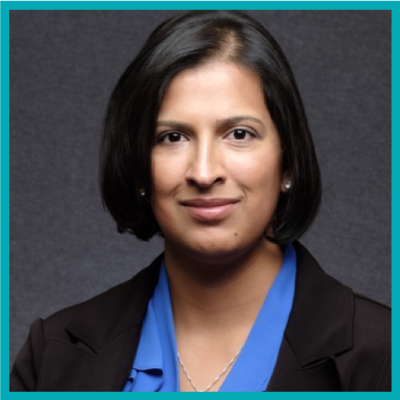
Vandhana Rabindranath
Vandhana Rabindranath graduated from the University of Nebraska-Lincoln with a Bachelor of Science in Environmental Science. She is currently an IT Sales Executive and enjoys helping her clients build their digital transformation roadmaps.
A chat with Ms. Rabindranath
What made you want to pursue a career in this field?
I started off with the desire to be a scientist, engineer, or lawyer. However, I always had a passion for sales. Combining both passions for sales and problem solving through technology led me to a career path in automation sales, where I could get the best of both worlds!
What advice do you have for someone who wants to get into a career in automation/engineering?
Besides getting involved with ISA, I encourage everyone to network as much as possible with people involved in this career. Even if they are not doing exactly what you think you want to do, talk to them anyway. I found a great career through making many connections and learning as much as I could from them.
Did you look up to someone in the field prior to the start of your career?
Surprisingly, no. I wasn't familiar with anyone that had succeeded in this field. I studied as much as I could to understand the unique values of this career and if it was right for me.
What makes you the most excited about your field?
The most enjoyable parts are understanding how I help people perform like rockstars at their jobs through technology, and working with clients with unique challenges due to the complexity of the pharmaceutical and medical device industries.
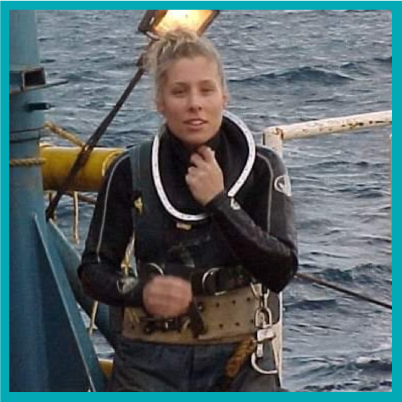
Marni Zabarsky
Humble is one word to describe Marni Zabarsky, a former commercial diver who was recently nominated for the Women’s Diving Hall of Fame. She received her Bachelor of Arts in Communication. After working a desk job and realizing she did not belong in an office, a conversation with a few Navy SEALS introduced her to the world of commercial diving, where she not only dominated what she was doing, but also made history through the process.
A chat with Ms. Zabarsky
Are you still diving?
I stopped diving about 13 years ago, but I am still in the industry. We are a niche market for sure, but I have stayed in the industry and I'm on the advisory board of the dive school I graduated from.
Were you always interested in diving?
I got my scuba certification long before I really knew anything about commercial diving. It wasn’t something I was super passionate about until I went to Vieques, a little island off the coast of Puerto Rico, where I encountered some Navy SEALS who were talking about diving and told me to check out a commercial diving career. When I left that island and came back to Massachusetts, I was working in an office, and it was not for me. I looked up commercial diving, quite my job and headed down to The Ocean Corporation dive school in Houston; the rest is history.
How long were you working as a commercial diver?
I started offshore in 1996, and I was surface diving from that point forward for about 3 or 4 years, after which, l was finally able to get into saturation. The company was really cautious because it was a first for them (to put a woman into saturation).
What does commercial diving entail?
We work off of vessels and sometimes platforms. Most of my dive career was spent living on and diving from dive support vessels with saturation systems built into them. The job entails all aspects of underwater construction. The tasks vary with each job. Divers can be connecting and burying pipelines on one job and cutting steel to remove a platform on the next. Most dives are spent working in the mud with little to no visibility.
What was the experience of your first dive?
My first dive was off a small anchor boat called the Sea Cat. We were live-boating, meaning the vessel was actively following behind the diver's bubbles while they located and followed a pipeline that was at the bottom of a large, deep, mechanical sled ditch made in the mud. My first dive was spent stepping off the edge of that ditch into pure darkness. I fell, clawing at a sheer wall of hard mud like a cat, for what seemed like miles to bottom, where the pipeline lay. I used my pneumo, a small air line on my dive umbilical that uses the back pressure of the water to measure bottom depth, to check the pipeline depth. Miles fallen was about 10 in reality. The only true difficulty of that first dive was stifling my thought that nursing school didn’t entail anyone having to conquer their fears of falling into a pitch-black subsea abyss. That was my first dive.
It is really amazing that you essentially made history in this field.
It was a great job. I loved it. I definitely never set out to make a name for myself, it was challenging but fun. I see now that I am older and have a daughter, what accomplishments have been made, and I acknowledge that.
Is there a piece of advice you would give to somebody in the field?
Ask a lot of questions. It can’t hurt to ask questions, it only helps. I also always tell women going into the industry that it is nothing for them to get ahold of my phone number. I will always talk with them if they want advice. I have always tried to promote comradery with that. I'm happy to share with women what I've learned in this industry so they are well-equipped and know what to expect when they leave dive school and step into the field.
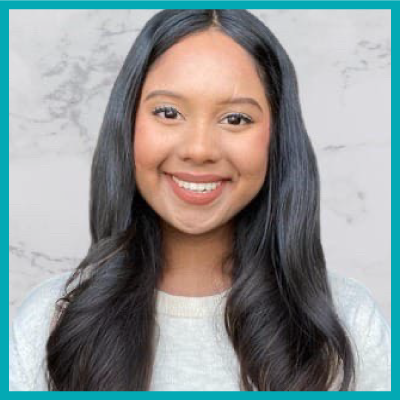
Shreya Nandiraju
Shreya Nandiraju pursued a Bachelor of Technology in Technology Management (BTech), as well as an Instrumentation Engineering Technology diploma. She currently works in technical services at an engineering services and industrial equipment supplier, and is very excited about the broad spectrum of her career field.
A chat with Ms. Nandiraju
Please briefly describe your current role/career.
The applications of automation span across a plethora of industries and entails both digital automation and process automation. My career exposure ranged from developing Industry 4.0 remote monitoring solutions using IoT sensors, telemetry-based data acquisition systems with a team of IT/software experts, and currently in a “customer success” role providing technical solutions to clients’ needs in fast-paced, team-driven settings!
As a Technical Services professional at Summit Valve and Controls – an engineering services and industrial equipment supplier, I work with cross-functional teams (IT, Operations, Project Management, Sales, and Business Development) to develop and provide complete solutions to customers’ after-sales needs. My role entails the continuous development of B2B and B2C processes (i.e. Cloud-based/SaaS CRM and ERP software processes and after-sales operations processes) for the Technical Service team through qualitative gap analysis and data-driven methods; management, execution and delivery of small-to-medium scale after-sales projects and technical client support requests; and building strong stakeholder relationships to create sought-after customer experiences and achieve product success and business scalability.
What made you want to pursue a career in this field?
Growing up, my career ambitions were to become a neurosurgeon (the anatomy of a brain seemed particularly interesting to me) or a pilot (the concept of aviation was certainly enticing and continues to be!) Soon after, however, my passion for technology and engineering attracted me to the field of automation. With a background in Technology Management and Engineering Technology, I was fortunate to indulge in a holistic career experience bringing the two worlds together. The opportunities to contribute to this space are endless with rapid advancements in the automation industry globally, cross-integration of disruptive market solutions, and adoption of groundbreaking technologies to drive enhanced automation worldwide. This includes (and is not limited to) advanced industrial process control, digital process automation, artificial intelligence, machine learning, industry 4.0, smart manufacturing, cybersecurity, robotics, and much more!
What advice do you have for someone who wants to get into a career in automation/engineering?
My motto – "an open mind to continuous learning is an open path to an incredibly rewarding journey" helps me focus on the "big picture", gain new perspectives, new knowledge, and new opportunities to learn from, share, inspire, and lead my fellow peers. Of many skills and values, a few that I believe shape long-term success for new graduates and experienced professionals are a coachable aptitude, technical expertise, stakeholder relationships, leadership, and teamwork. A passion and drive to stretch your comfort zones, meet new people, learn about evolving technologies and advancements in the automation industry will nurture overall interest in this space and catapult your career success!
Did you look up to someone in the field prior to the start of your career?
Personally, the International Society of Automation (ISA) has served as an invaluable resource for me, where I gained inspiration, coaching, and guidance from industry experts and leaders locally and globally. I was introduced to the organization during my post-secondary education and today, this exposure has catapulted my career success and personal growth by leaps and bounds!
What makes you the most excited about your field?
The broad spectrum, indeed! A truly inter-connected community, where the applications of automation are applicable to multiple facets of industry and is continuing to rapidly advance through adoption efforts of new technologies that drive efficiencies, improved ROI, increased business performance/scalability, and enriching customer experiences. More importantly, my particular area of focus involves driving customer success and experience through facilitation of reliable technical support and efficient product delivery. Gaining first-hand insight into the downstream process of a business is certainly exciting, as it impacts the “feedback loop” of how businesses continually adapt, grow, and adjust to changing customer experiences and needs.
Is there a piece of advice you have received that you would like to share for future automation professionals?
A very simple, yet highly effective piece of advice I have received and apply to my daily life is:
“Be a learner – a learner that is courageous, steps out of their comfort zones, seeks mentorship and advice, meets new people, explores new opportunities, inspires people in their personal lives and career, and ultimately impacts larger communities locally and globally… a learner that is not afraid to DO.”

Do you know a female engineer who has made a significant difference in your life or career? If so, we want to know about her!
Please comment with a video and/or written testimonial on one of ISA’s social channels: Facebook, Instagram, LinkedIn, Twitter, or TikTok, and be sure to use the hashtag (#ISAInspire) and tag the person who inspired your testimonial! Video testimonials are highly encouraged and should not exceed 60 seconds; however, written testimonials will also be accepted. Please limit written testimonials to no more than 250-300 words.

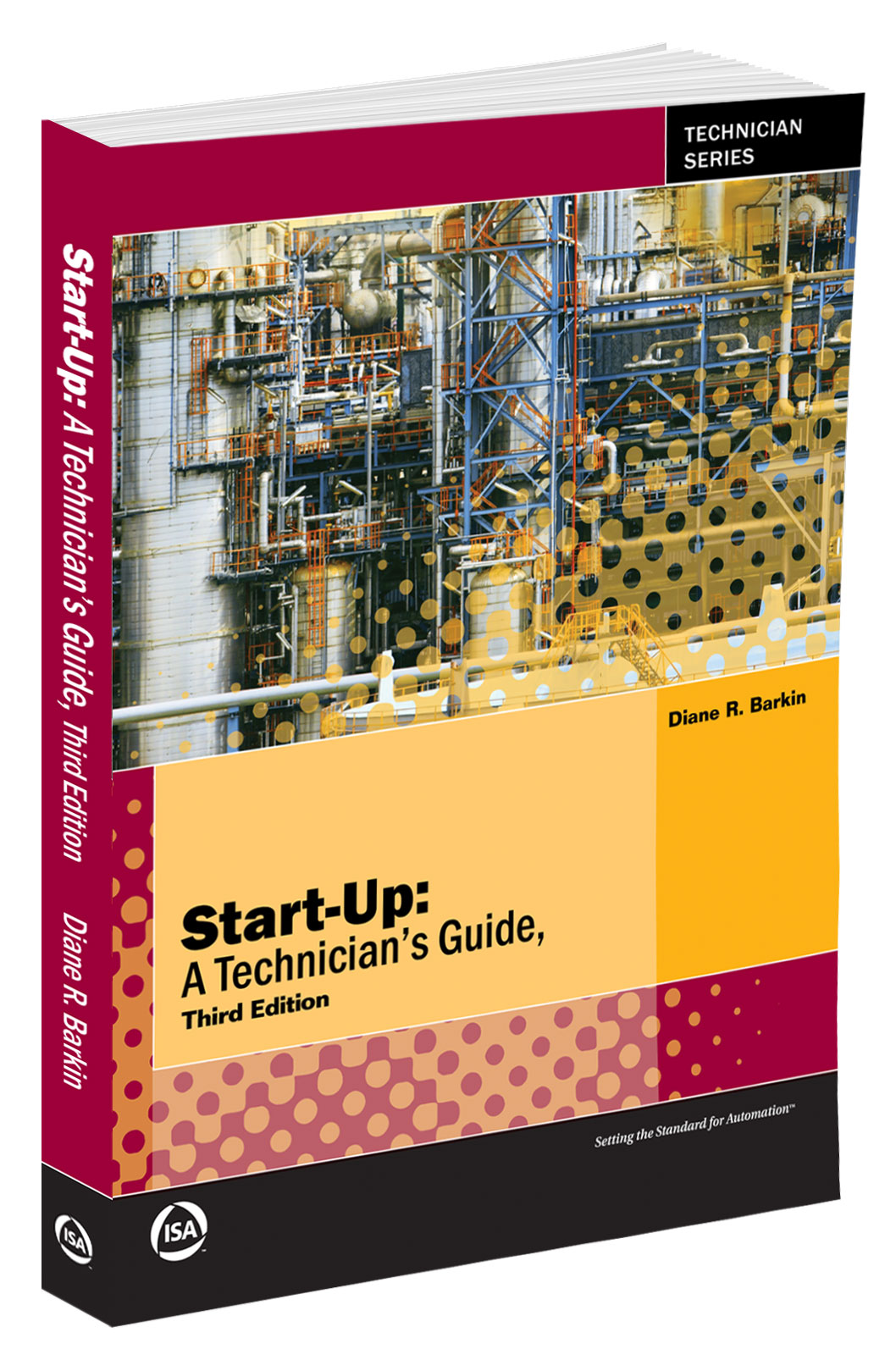
Start-Up: A Technician’s Guide, Third Edition
by Diane R. Barkin

A Guide to the Automation Body of Knowledge
edited by Nicholas P. Sands, P.E., CAP®, and Ian Verhappen, P.E., CAP®
- “Chapter 35: Data Management” by Diana Bouchard
- “Chapter 19: Operation Training” by Bridget Fitzpatrick

The Road to Integration:
A Guide to Applying the ISA-95 Standards in Manufacturing, Second Edition
by Bianca Scholten and Dennis Brandl

Women engineers, your time is now! ISA recognizes your leadership and how vital it is in the world of automation! Help us celebrate International Women in Engineering Day. Available on mugs, apparel, etc., wear our new design with pride. Shop here.


Check back in with our featured female engineers from International Women in Engineering Day 2022.
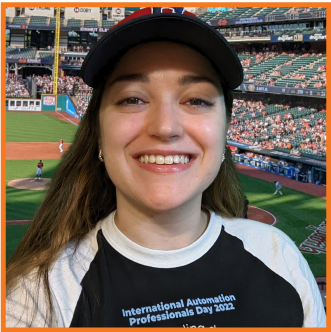
Sherry LaBonne
Sherry LaBonne graduated from Cleveland State University in Ohio and received her degree in chemical engineering. She is currently working as a product manager at Rockwell Automation and has been an ISA Member for three years.
A chat with Ms. LaBonne
ISA: Tell us about your career!
Sherry: Since graduation, I’ve spent my career working at Rockwell Automation. I started as a controls engineer, designing and commissioning industrial automation control systems. About a year ago, I transitioned into software product management.
Today I work on a team of product managers for our next-generation automation design software. I’m responsible for running our Preview Release Program, where we share upcoming features, software improvements, and collect user feedback. I also coordinate the iterative improvements process we use to turn that feedback into an enhanced product for our customers.
ISA: What made you want to pursue a career in this field?
Sherry: While my degree is in chemical engineering, I pursued a career in automation and controls because that is a very flexible skill set and highly transferable to many different industries and locations. I also believe, more broadly, that automation is here to stay, and there is a lot of career stability here that may not exist in other fields.
ISA: What are some of the best things about being a member of ISA?
Sherry: The best thing about being an ISA member, hands down, are the other ISA members! I’ve met so many wonderful people willing to share their knowledge and expertise. They are also willing to encourage and mentor those of us who are still early in our careers.
I appreciate the opportunities I’ve been given to develop my leadership skills. At every level, from international committees to local sections and across every subject matter area from instrumentation to cybersecurity—there are many volunteer opportunities available if you let someone know that you’re interested!
Lastly, I appreciate that through ISA, I can remain knowledgeable about controls engineering, the discipline I pursued when I first started my career. Controls engineers and technicians will use the software I work on now, and I can’t be a good product manager without understanding their perspectives.
ISA: What advice do you have for anybody who wants to get into a career in automation/engineering?
Sherry: Networking within your company is important for career advancement, but don’t discount the importance of forming a network within your wider industry as well. ISA involvement is a great way to do that.
Never forget how cool your job is! Our work is a critical enabler for industries producing energy, processing food, manufacturing vital products, and adding many other things to the world safely and efficiently. Let that motivate you when things get tough!
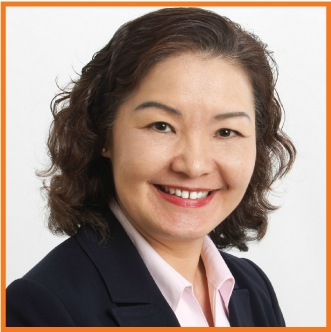
Dr. Penny Chen
Dr. Penny Chen received her Ph.D. in electrical engineering from Northwestern University. Currently, she serves as the principal technology strategist at the Yokogawa U.S. Technology Center. She has been an ISA Member for 14 years, including being a senior member and an ISA Fellow.
A chat with Dr. Chen
ISA: Tell us about your career!
Penny: I am responsible for technology strategy, standardization, and exploring new technologies for industrial applications with a focus on robotics, artificial intelligence, wireless technologies, smart sensors, etc., for autonomous operation.
ISA: What inspired you to achieve a career in automation/engineering?
Penny: I want to make society better.
ISA: Was there a moment in your life that clicked telling you that this is what you wanted to do?
Penny: I have always been excited to use a variety of technologies in industrial applications to enhance operational efficiency through automation and improve the safety of the working environment.
As an electrical engineer, creating and applying the best and latest technologies to enhance human society has always been my passion. After graduating with a Ph.D. in electrical engineering from Northwestern University, I joined the communication industry and focused on wireless technologies like cellular and mobile (wide area wireless), WiFi (local area wireless), Bluetooth (personal area wireless), and others. I was excited that wireless technologies might become the major communication technology that transforms our working style.
When the opportunity came to use wireless technology for smart sensors in industrial automation, it clicked for me. I foresaw the great potential of using wireless technologies to enhance automation, improve safety, and better our society. I certainly wanted to be part of it. Therefore, I joined Yokogawa. My first day on the job was joining the ISA100 wireless standardization committee meeting.
ISA: What advice would you give to other women who want a start career in STEM but don’t know where to start or are nervous?
Penny: STEM is a great field for female scientists and female engineers. Follow your passions and do the best you can in your field. Don’t allow others to define what you can do and who you want to be.
ISA: What do you love most about your field?
Penny: The process industry is a traditional and important industry that supports every corner of society. Even though it is a traditional industry, it leverages many of the latest technologies. Currently, I am leading the Yokogawa Robotics Task Force and am investigating how to use robotics to enhance safety and improve operational efficiency. This is a very interesting but challenging project because of the uniqueness of the process industry. The thing I love the most about my field is through using different technologies; I can sense and see how my contributions improve society.
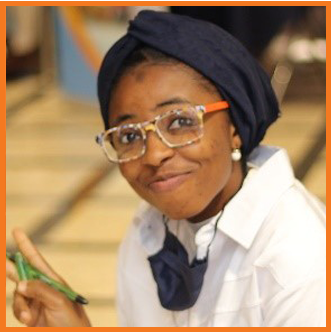
Mariam Sulleiman
Mariam Sulleiman graduated from the Federal University of Technology in Nigeria and received her degree in electrical and electronics engineering. She is currently working as an intern with Process and Control LLC and is the first female engineer in her family.
A chat with Ms. Sulleiman
ISA: Tell us about your career!
Mariam: A few of my tasks include designing and building industrial control panels as well as motor and I/O control panel designs.
ISA: What made you want to pursue a career in this field?
Mariam: I was inspired to pursue a career in engineering and automation because it provides me with the knowledge and skills necessary to discover and develop solutions to problems that affect my community. I want to be more than what my family and community dare to be. I want to be an achiever. I am the first female to earn a degree in electrical and electronics engineering in my family and community, which is an honor and a privilege for me. I want my story to motivate other young girls to pursue a career in STEM.
ISA: Do you ever have moments on the job that let you know this is where you are meant to be?
Mariam: Yes. It occurs anytime I am working on an engineering project. There is a sense of responsibility I get any time I identify a problem or need, and I immediately start thinking and designing ways to solve it.
ISA: What advice do you have for other who wants to get into automation/engineering?
Mariam: The advice I will give to other women especially is that they should believe in themselves and never give up on their dreams. It might appear intimidating and difficult, but if you have faith in yourself, everything will automatically fall into place. Look for a successful female leader or mentor to shadow. This is someone who can encourage and guide you through the process. Having a mentor who believed in me was extremely beneficial because there were times when things could become tough, but what helps is having someone who has been in your shoes and has successfully navigated similar challenges and can guide you. Finally, join a local or international community that will support you and help you advance your career, such as the International Society of Automation, Automation Ladies, the Association of Professional Women Engineers of Nigeria (APWEN), the Institute of Engineering and Technology, and so many others!

Emily Henry
Emily Henry received her bachelor of science in electrical engineering from Clemson University. Currently, she is working as a safety instrumented system (SIS) design engineer for aeSolutions, a process safety lifestyle company. Emily has been an ISA member since 2018 and appreciates the long-lasting connections she has made with colleagues.
A chat with Ms. Henry
ISA: Tell us about your career!
Emily: My current role involves leading SIS design projects, interfacing with clients to discuss design challenges and solutions, and sometimes traveling to client sites to walk down project equipment. I do safety instrumented function reliability calculations, determine the requirements for how safety functions must operate, and develop procedures to appropriately test safety functions in order to meet ISA/IEC and equipment manufacturer standards.
ISA: What inspired you to achieve a career in engineering?
Emily: I got involved in introductory engineering classes in high school and participated in my high school FIRST Robotics team. Those experiences opened my eyes to the multitude of different engineering disciplines and opportunities to find something I was interested in pursuing as a college major and future job.
ISA: Was there a moment in your life that “clicked” telling you that this is what you wanted to do?
Emily: Maybe not one specific moment, but after being a safety captain on my robotics team and being part of the robot electrical wiring team, I knew that continuing to study something in the realm of electrical engineering was likely my path. It didn’t click until after I got my first job as an instrumentation engineer that safety design was the piece that interested me the most and would utilize my knowledge of electrical engineering. Being an SIS engineer is something that I do well partly because I enjoy continuously learning about the field.
ISA: What advice would you give to other women who want a career in STEM but don’t know where to start?
Emily: My advice would be to take advantage of opportunities to learn from others about various STEM fields. It might be a bit nerve-wracking to attend a meeting with other industry professionals or reach out to a potential mentor figure to ask questions. However, there are so many opportunities to connect with people either through professional organizations like ISA, student organizations at the college level or through personal contacts. One of my colleagues plans to connect me with his niece, who is about to graduate from high school and has questions about STEM professions. I’m more than happy to chat with her to offer any perspective I can. I’ve also helped students update their resumes when searching for STEM jobs and provided input on what I have experienced when job hunting. More often than not, STEM industry professionals are willing to connect with prospective future STEM professionals and have honest conversations to answer their questions. It has always benefited me to make connections and put myself out there to learn about opportunities in my industry and network with others. I’ve made some great friends along the way too. So just take that chance and talk to people about their experiences or join a professional society to learn about growth opportunities. You won’t regret it!
ISA: What do you love most about your field?
Emily: I love that it is a dynamic field that is evolving in complexity and importance. I’m never bored since my projects can range across all types of manufacturing or chemical processes. I’m constantly learning how to apply core knowledge from my degree and work training to new subject matter and end-user applications. It’s very rewarding to know you’ve provided a design service that benefits a client through safe operations and the ability to maintain their systems accordingly.

Jessica Morell
Jessica Morell is a Manufacturing Operation Management and Manufacturing Execution System (MES MOM) and automation associate manager at Accenture, an information technology company. She received her degree in electrical and computer engineering technology from the University of Dayton and is actively involved in ISA’s Smart Manufacturing and IIoT Division.
A chat with Ms. Morell
ISA: Please describe your current career.
Jessica: In my current role with Accenture, I work with clients to digitize and innovate their operations, manufacturing, and their products. I have worked on multiple projects, but I am currently supporting a large MES implementation.
In my previous roles, I was a technical product manager and solutions consultant. I worked for two industrial automation solution supply companies (WESCO and Revere Electric), both Rockwell Automation channel partners. At both organizations, I managed the automation, software, industrial networking, IIoT, and Industry 4.0 solution portfolios. I managed the product offering, go-to-market strategy and was the key technical resource on those solutions.
ISA: What made you want to pursue a career in automation?
Jessica: There are so many options for you when you are graduating with an engineering or technical degree; it was actually a bit overwhelming to me. I knew that I would enjoy variety in my day-to-day activities, interacting with clients, and manufacturing (it is basically how it's made everyday!) and that is why I decided to take the industrial automation technical sales role out of college. What I didn't know at the time was that I would fall in love with manufacturing and the innovation around it. Innovative technology in manufacturing positively impacts everyone in the world. Sometimes making an impact on the world is as simple as helping ensure everyone has access to food, starting with producing it sustainably.
ISA: How long have you been a member of ISA?
Jessica: I have been a member of ISA for over two years. I am the marketing chair for the Smart Manufacturing and IIoT Division. I was also on the Board of Directors for the Will-Dupage Section.
ISA: What inspired you to focus on a career in IIoT?
Jessica: When I was starting out my career, Ethernet/IP was still a “newer” thing in manufacturing and most of the places I was visiting were using PLCs older than me! I saw a real opportunity for growth there, and industrial networking lead to IIoT as I moved through my career. It's a very cool space to be in with tremendous growth potential, especially when it is combined with AI, blockchain, etc.
ISA: Was there a moment in your life that “clicked” telling you that this is what you wanted to do?
Jessica: Honestly, it clicked in the last few months, after almost 10 years in! I had a realization that everything in my career so far happened for a reason to get me to where I am today and I was so proud of myself. There were some low points in my career and some real challenges that tested me, but they happened for a reason and the path I took was the right one, or I wouldn't be where I am today.
ISA: What advice would you give to other women who want to pursue a career in STEM but don’t know where to start or are nervous?
Jessica: You will never know what will happen if you don't do it. Take the chance, the risk, the opportunity. Nerves are hard to calm, but remember that confidence is a choice just like most things in life. I worked with a professional coach for a few years. It was the best thing I did in my professional and personal life. I learned so much about myself and the type of leader I am. One of the best things I learned is that we choose to feel a certain way. You have the choice to feel a certain way about something and you are in control.
The second-best thing I learned was that other people do, say, and act based on how they feel or their insecurities. It has absolutely nothing to do with you! Those may seem like simple things, but that’s important to know as you navigate your career. I remind myself of these things daily.
Don’t put pressure on yourself to make the perfect career choice when you are starting out. You can pivot and try new things; everyone's path looks different. Take a deep breath and release the pressure to make the perfect choice. Also, leverage your resources, network, and seek out mentorship. Learn what you can about your interests and options.
ISA: What do you love most about your field?
Jessica: There are a lot of great aspects, but I love the ability to learn, adapt to new situations, and grow every day. I also love knowing that what I do can impact the world in a positive way!

